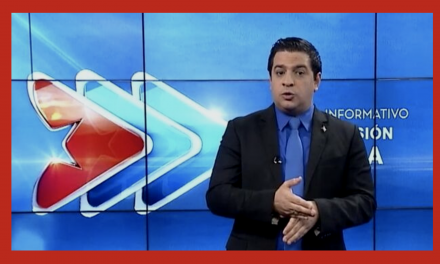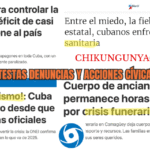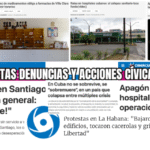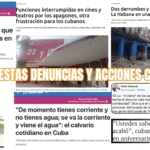The photo of French President, Emmanuel Macron sitting next to Miguel Díaz-Canel and staring at him while Raúl Castro’s main assistant attacks Western capitalism is very suggestive in its staged remake of the international campaign launched by Fidel Castro in the 80s to not pay the debt accumulated by Third World countries with their First World creditors.
This happened recently when Díaz-Canel spoke as president pro tempore of the Group of 77 countries (there are actually 134 countries) at the Summit for a New Global Financial Pact, held in Paris.
By the way he looked at the Cuban speaker, the French president seemed to say to himself: Before talking about the exploitation of the developed world to the underdeveloped, this guy should explain how the governments of the debtor countries today squandered, wasted, and stole the bulk of the money lent to them by the governments and financial institutions of the West and that according to the World Bank, only among the 47 creditor countries with low per capita income (lower to $1.945 annually) reached $860 billion in 2020. And if middle-income nations (up to $12,000 per capita annually) are added, they add up to more than $8.3 trillion.
“Our peoples,” Díaz-Canel said, “are laboratories of colonial recipes and renewed forms of domination that use debt, the current international financial architecture and unilateral coercive measures to perpetuate underdevelopment…”
Fidel’s call not to pay debts was not followed by any government.
It was truly déjà vu of what happened in Havana in 1985 at an international conference convened by Fidel Castro at the Palace of Conventions with the participation of hundreds of people from dozens of Third World countries and attended by the author of this article.
The Cuban pharaoh said then: “Something very important: it is not a matter of renegotiating the debt, rescheduling the debt and offering terms of 10 years, 12 years, 14 years and giving 3 years, 4 years, 5 years of grace period to pay the capital; The debt can be renegotiated and it doesn’t solve anything at all, it’s that it can’t pay the interest. The key point is they can’t pay the interest.”
The clear message was from now on, no one should pay a penny more to their creditors. Since that month of March, 38 years ago, Cuba stopped paying the principal and interest on the enormous Cuban debt that exceeded $ 51,000 million dollars.
It was perceived that Castro I wanted to destroy the financial system.
The worst thing was that Fidel said: “We do not postulate that the international financial system will break, or that industrialized capitalist depositors will lose their money, or that taxpayers will have to pay more taxes.”
Obviously, the Paris Club and all international creditors perceived the opposite: that Castro I wanted to destroy the international financial system born out of the Bretton Woods Conference (USA). After World War II and a clean slate, nobody owes anyone anything.
The consequences for Cuba were disastrous because shortly after the Soviet “Paganini” disappeared the country was left hanging from the brush. The Cuban State could no longer have access to loans or commercial credits from the creditor powers when it needed them most because of Castroism having been weaned from its wet nurse in the Kremlin. The logic is: who’s going to lend money to someone who tells you they’re not going to pay you?
The “infallible” backfire, “special period”
Between 1986 and 1990, Soviet subsidies to Cuba averaged about $4 billion a year, keeping Cuba’s parasitic economy afloat. But Castro I, who was said to have an infallible nose for detecting dangers and opportunities, moved by his culture of not paying what he is lent (in the university they fired him). Fidel was not able to perceive that with Gorbachev’s perestroika reforms, the USSR did not have much life left.
I remember that at that highly publicized conference in Havana, hundreds of leftist delegates applauded the “great Fidel” euphorically. All the while their respective countries continued to renegotiate and Cuba continued to pay their debts on better terms.
Almost no one today trades with Cuba if they do not pay in cash.
Instead, Cuba sank into the worst socio-economic crisis in its history (“the special period”). If another “paganini” named Chávez had not appeared, the doors to the dollars of the “enemy” would not had been opened and the survival of the Castro dictatorship would have been very unlikely.
Now, with the experience of what that cost Cuba, what’s the moral of the story? Castro II does the same as his brother (his hero) did almost 40 years ago, when almost all countries refused to export to Cuba if they are not paid in cash. Money ahead, or no business.
Developed Countries sent $626 billion (about $1,900 per person in the US) to Developing countries in 2022
A revealing detail of the political-ideological character of this new attack on the capitalist West is that in 2022, according to the World Bank, the total remittances sent from the countries of industrialized North America to countries of developing South America reached $ 626,000 million net dollars, at no cost to the recipient countries.
That tsunami of gifted foreign investment generated new family businesses, more jobs, improvement or purchase of homes, transportation equipment, tractors, better medical care, education, food for millions of families, technology for small or medium businesses, and many other benefits.
In addition, the Cuban “president” before accusing anyone should explain what the Castro regime did with the more than $ 140,000 million dollars it received from the West and Moscow for more than half a century without paying back a penny, not even when the creditors forgave 80% of what was owed. The Castro Regime should clarify where the $18.5 billion they still owe went, with their country in ruins and people going hungry.
Enough of the “anti-imperialist” antics of the twentieth century that are outdated even for today’s left-wing Recyclites.



























